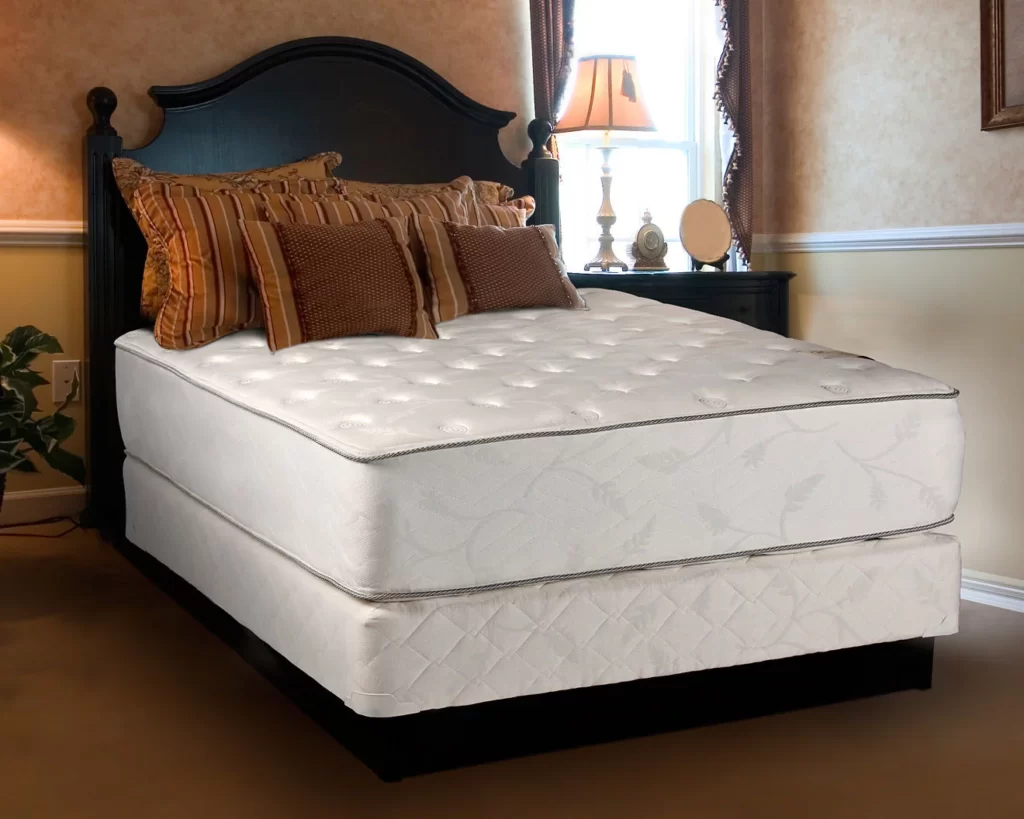The importance of getting a good night’s sleep for general health and wellbeing. The kind of mattress you sleep on is one important aspect that helps promote healthy sleep. With so many options on the market, it’s critical to comprehend the advantages and disadvantages of various mattress types. We’ll explore the age-old argument between sleeping on a hard or soft mattress in this post.

· The Benefits of a Firm Mattress for Spinal Alignment Hard mattresses, also known as firm mattresses, give your spine strong support. They maintain a more neutral position for your body, which can lessen back pain and keep your spine in the right alignment.
· Hard mattresses are renowned for their longevity. Compared to their softer competitors, they tend to maintain their shape and structure for a longer time. This could have a big impact on the cost of your mattress.
· If you tend to be heavier than average, a firm mattress will help to uniformly distribute your weight, reducing sinkage and guaranteeing a level sleeping surface.
· Prevention of Allergens: Due to their tightly woven textiles and absence of soft material, hard mattresses are less likely to collect dust mites and other allergens.
The Case for a Soft Mattress to Reduce Pressure Points Soft mattresses, usually referred to as plush or medium-soft mattresses, follow the contours of your body. They are an excellent option for persons with joint pain because of the contouring effect’s ability to ease pressure points.
Sleepers, especially side sleepers, generally find the padding of a soft mattress to be more comfortable. It could exude a cosy, inviting vibe that promotes unwinding.
Soft mattresses can accommodate a larger variety of sleeping positions since they are adaptable and flexible. A soft mattress could be more accommodating if you frequently change positions during the night.
A soft mattress’ capacity to adapt to the shape of your body helps enhance blood circulation by lowering the likelihood that pressure points will block blood flow.

Medium-firm mattresses are a good compromise for people who can’t decide between hard and soft beds. These mattresses provide the right amount of comfort and support. They offer a certain amount of cushioning for pressure point alleviation while also delivering enough hardness to keep the spine aligned.
A hard mattress could be your best buddy if you frequently have back discomfort. The firm surface aids in appropriately distributing your body weight and minimising sagging, which could exacerbate your pain.
As opposed to softer mattresses, hard mattresses typically feature stronger edge support. This implies that you can sit or sleep close to the edge without worrying about falling off.
A firm mattress can be a better choice if you have a tendency to sleep hot. Because you’re not sinking, there’s less possibility that heat will be trapped around your body, which improves airflow.
It may take some time to get used to switching from a softer mattress to a hard one. Your body may initially feel uncomfortable as you get used to the stiffer surface.
Compared to softer mattresses, hard ones don’t conform as much to your body. If you tend to sleep on your side, in particular, this could result in pressure points.
Hard mattresses are simply uncomfortable for some people. A hard mattress could not give you the level of comfort you want if you’re used to a cushy sleeping surface.

Soft mattresses’ capacity to adapt to your shape might help relieve pressure points on your hips and shoulders in particular.
A soft mattress’ velvety surface can give off a sense of luxury and comfort, making it particularly tempting after a long day.
For side sleepers, soft mattresses are frequently advised since they can cushion the shoulders and hips, maintaining the spine in a more natural posture.
A soft mattress may not offer the appropriate support if you are heavier or need significant support due to back problems, which could cause discomfort or agony.
Soft mattresses tend to sag and compress more over time than firmer ones, which causes them to wear out more quickly.
Soft mattresses’ tendency to conform can occasionally lead to heat retention, which could be uncomfortable for warm sleepers.
There is no one size fits all solution to the issue between hard and soft beds. Each person has a different optimum mattress type depending on their body weight, sleeping posture, and personal preferences. It is advised to go to a mattress store where you may test out several possibilities and get a sense of what works best for you.
We at LoveMyBeds.co.uk recognise the value of getting a good night’s sleep. Because of this, we provide a variety of premium mattresses in firm, gentle, and medium-firm alternatives. In order to ensure that you choose the ideal mattress for your particular needs, our knowledgeable team is ready to assist you throughout the decision process. Spend money on your sleep to improve your health.
Does a sleigh bed come with a mattress?
How to Arrange Your Bedroom for Maximum Bed Comfort
The main distinction is in how firm and encouraging they are. With little give, a hard mattress, sometimes referred to as a firm mattress, offers a stable and supportive surface. A soft mattress, on the other hand, provides greater cushioning and follows the natural contours of your body.
A hard mattress might be better suited if you experience back problems. Its firm surface may lessen discomfort since it maintains good spinal alignment and evenly distributes your body weight. Finding the right balance is crucial, though, since a mattress that is overly firm could put extra strain in specific places.
Despite their remarkable pressure relieving capabilities, soft mattresses may not give enough support for everyone, especially those who have back problems. A mattresses that is overly soft and offers inadequate support may cause poor spinal alignment and aggravate back discomfort.